10 Great Coming-of-Age Films
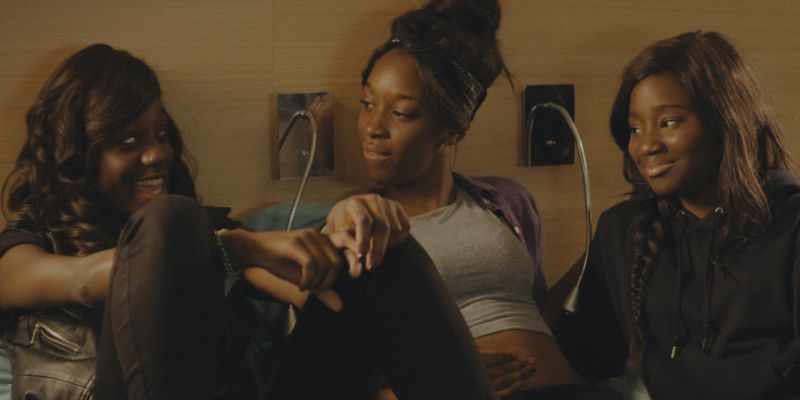
PhD Student in Culture, Film and Media at the University…
Whether it’s aimed at big kids or little kids, one of the most common themes in films from the last few decades has been the concept of ‘coming-of-age’. What this actually means can vary. For instance, ‘coming-of-age’ films may be ‘teen dramas’ or stories about childhood, sexuality, gender, or (auto-) biography. They might be simple morality tales or more complex explorations of children or young adults growing up in extreme circumstances, whether historical, fictional or otherwise.
What is most important, however, is the universality of such stories. They can be very specific to the experiences of the individual(s) depicted, but they often have general themes and arcs that include alienation, acceptance, awakening desire, and learning a lesson. They might also be films that exist within already established genres such as the comedy drama, the rom-com, or the thriller rather than the ‘coming-of-age’ film proper.
Many of these films emerged in the 1970s, 80s, and 90s when a more explicit exploration of the individual was apparent not only in cinema but in society at large, especially in America. Films like Boyz ‘N The Hood, The Breakfast Club, Fast Times at Ridgemont High, and American Graffiti famously and proudly concerned themselves with the trials and tribulations of teenagers, high school and the transition from childhood to adolescence and/or adulthood, with crime, sexuality and education providing key storylines, while the British Up documentary film series explored the lives of real people from the ages of 7 to 56. Older pictures from previous decades – such as Bicycle Thieves/The Bicycle Thief, Pinocchio, The 400 Blows, and Love on the Run/Antoine and Colette – were a similar mix of traditional tales of morality and friendship and some darker themes with more daring plot points involving crime, punishment and even sexuality.
These films – along with more recent examples such as Y Tu Mama También, My Summer of Love, Juno, An Education, and Boyhood – have been covered in some depth and in a number of other lists concerning coming-of-age films. Therefore, they have not made the cut in the modest selection below, which aims to offer some alternative definitions of such films as well as some less revered examples.
Indeed, the majority of the list is comprised of films from the 21st century, but this is not to play down the impact or value of previous coming-of-age films, nor does it represent the entirety of the list. The decision to include so many recent examples is based on the novelty of discussing them and the more diverse stories and audiences they represent. There are, of course, some more typical or mainstream examples as well, but hopefully not exclusively so.
The list is of course not exhaustive, and there are many brilliant (perhaps arguably better) examples to discuss, which is heartily encouraged in the comments section below. In the meantime, however, in no particular order and without further ado, here are a collection of ten great movies that deal with the coming-of-age.
10. Toy Story 3 (2010)
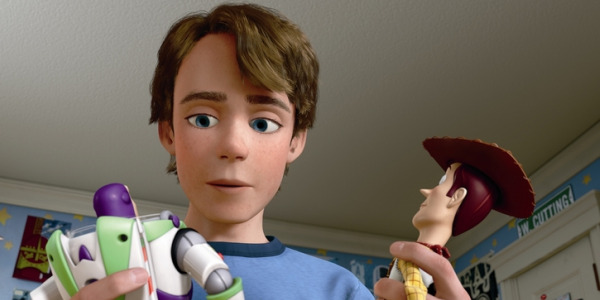
The final film in the Toy Story trilogy (for now we are ignoring the existence of the upcoming fourth film, which has a lot to prove), Toy Story 3 depicts the end of Andy’s childhood, the struggle for him to let go of his toys, and their attempts to find a new life and meaning. Though this may only be explicit in the film’s final act, there are constant references to this pivotal moment in the background of the entire picture. What is more, the final sequences where Andy leaves home and consoles his mother, before donating his beloved toys to a young girl and allowing himself one final goodbye play are so powerful and representative of growing up that they alone secure the film a deserving place on this list.
A touching and poignant farewell to childhood not just for Andy, but for Woody, Buzz and all the gang, as well as the fans of the films, who had grown up watching his toys and fully supporting their loyalty and devotion to him. It is a sincere and thankful reflection on the joys of childhood, the necessity of maturity, and the perpetuation of youthful innocence, leaving not a dry eye in the house.
9. Submarine (2010, Richard Ayoade)
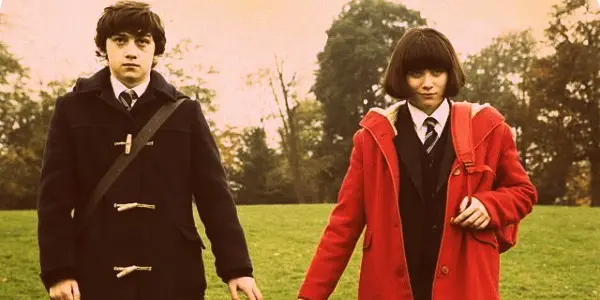
A far more standard, though admittedly dorky, examination of teenage development comes in the form of Richard Ayoade‘s debut feature, Submarine. Adapted from Joe Dunthorne‘s funny and awkward novel, it presents a much more likeable and identifiable version of its protagonist than its source material, without losing any of his eccentricities.
Outcast oddball Oliver Tate begins the film by fantasising about the local and national mourning that might follow his sudden death. He then recognises the truth that he is essentially invisible, especially to the girl he is most eager to attract the attention of – the cool, but equally odd, Jordana. Whilst trying to initiate a relationship with her, Oliver attempts to inject some mystery and excitement into his sleepy Welsh hometown by spying on his parents and fending off an old flame of his mother’s who he believes is trying to seduce her. Across the course of the film, Oliver explores his sexuality, personality and paranoia, while learning the importance of not taking things for granted and become too self-involved.
A unique and suitably awkward take on adolescence, it is a more standard ‘coming-of-age’ film and a superb watch.
8. The Kids Are All Right (2010, Lisa Chodolenko)
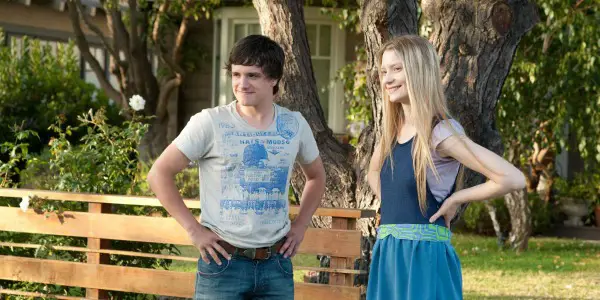
The Kids Are All Right may not be the most obvious film to find in this category, but its presence is appropriate. Lisa Cholodenko‘s drama about a lesbian couple whose children track down their sperm donor father is a witty, restrained and intelligent examination of the similarities between the pressures of middle-age and adolescence. Both the parents and their children are trying to come to terms with their age, their (sexual) desires, their identity, and their futures.
Jules (Julianne Moore) is worried that she is a failure who has never been able to settle on a career. She also struggles with an unexpected attraction she feels towards the handsome, charming, newly-discovered Paul (Mark Ruffalo). Paul is both shaken and excited by the appearance of his children and considers becoming a proper parent himself. Nic (Annette Bening) is worried that she is becoming an automaton and losing a grip on her family and her alcohol intake. Kid Joni (Mia Wasikowska) is fearing the onset of college, leaving the nest, and the possibility of romance, while Laser (Josh Hutcherson) is growing increasingly hostile towards his parents and his own sense of identity.
Though things get tough for a while, the overall message of the film is positive and no matter what, as the title suggests, the kids are all right.
7. Persepolis (2007, Marjane Satrapi)
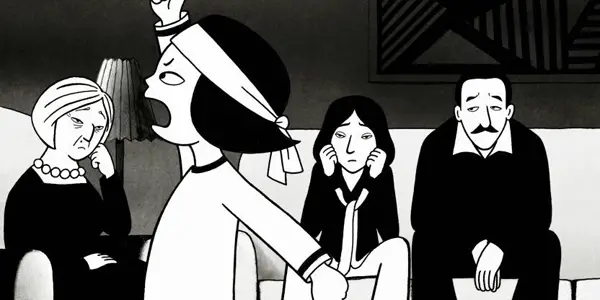
A striking animation based on Marjane Satrapi‘s autobiographical graphic novel, Persepolis is a bold, frank and funny commentary on societal and political expectations on youth in general and women in particular. The sexual and political hypocrisy of Iranian and Western cultures before, during and after the Iranian Revolution of the 1970s is given a fitting satire from an original and daring filmmaker. What is most disconcerting is that the satire remains relevant to contemporary society and exposes the insidious pressures on young women that are woven into the fabric of everyday life, influencing decisions on how to dress, speak, act, and explore and manage their own bodies.
The naivety of the young Marjane is captured critically but not judgementally and the development of her personality and the difficulties of her life are portrayed tactfully. It is a very unfussy film, choosing a poignant and understated tone for the most part that makes for a more powerful examination of both the ordinary and extraordinary aspects of Satrapi‘s life within the context of troubling and unusual events. Moreover, it gives young Muslim women a central character to identify with and maybe even aspire to, which is something of a rarity in Western cinema, whether mainstream or otherwise.
6. Shadow of a Doubt (1943, Alfred Hitchc*ck)
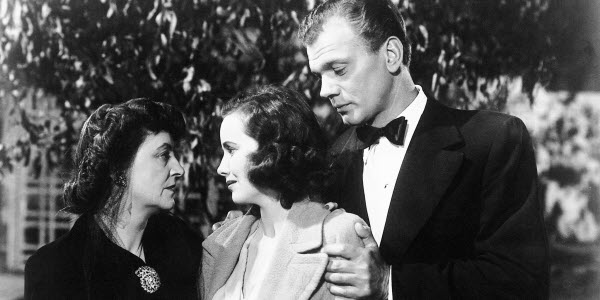
Hitchc*ck‘s personal favourite of his own films, Shadow of a Doubt is a small-scale, character-driven thriller follows a young woman living in the comfort of small-town America in Santa Rosa, California. Nice and wholesome as her home may be, Charlie is somewhat bored of her surroundings. That is until her Uncle Charlie arrives to visit his namesake and her family. A renegade bachelor whose business takes him all over the world, Uncle Charlie is a breath of fresh air and perhaps even a role model for his teenage niece, who finds herself bizarrely attracted to him. After a while, however, her uncle’s presence becomes intrusive and unsettling, especially as Charlie comes to learn of a string of murders committed across the country by an unknown male in many of the places her uncle has visited.
Dealing with themes of duality, obsession, identity, and personal epiphany, Hitchc*ck’s masterpiece explores maturity, courage and responsibility in the face of inexplicable, unnatural and unnerving events. The film heavily influenced Park-Chan Wook‘s Stoker and, though not most commonly associated with the coming-of-age film, the audience watches Charlie grow in age and as a person across the course of the picture.
5. Crooklyn (1994, Spike Lee)
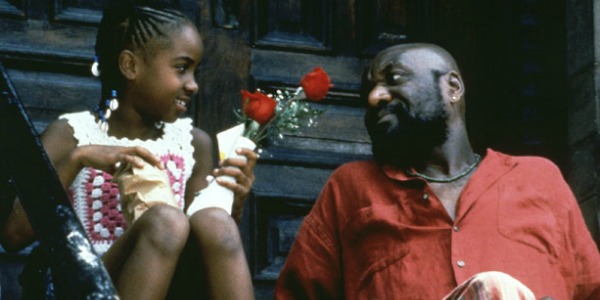
Spike Lee‘s semi-autobiographical drama is told through the eyes of 9-year-old Troy as she and her brothers grow up in the Bedford-Stuyvesant district of Brooklyn, New York. Her mother Carolyn is a schoolteacher and her father Woody is a jazz musician with a temperamentally successful career. Throughout the film, Troy and her family encounter a number of financial and personal difficulties, while Troy finds herself having to mature and take a much more central role in the running of the household – much sooner than she expected to.
Crooklyn mixes comedy and tragedy with a lively tone and period-appropriate soundtrack, comprising of 1970s hits such as Stevie Wonder‘s ‘Signed, Sealed, Delivered I’m Yours’ and the Jackson 5‘s ‘ABC’. Lee manages to steer clear of sentimental nostalgia, however, and craft a film that is genuinely moving despite clearly being a very personal project to its co-writer/director.
Zelda Harris gives an excellent central performance as a character forced to grow up fast by sudden changes in her life, which she does with a powerful stoicism and a ready willingness to learn.
4. The Devil’s Backbone/El espinazo del diablo (2001, Guillermo Del Toro)
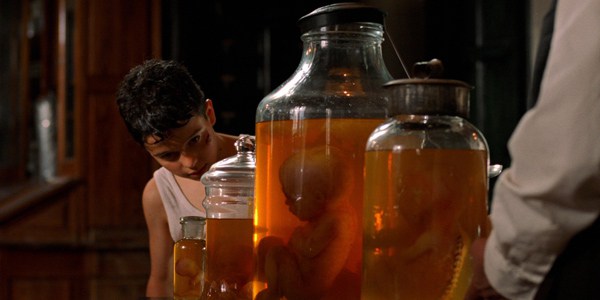
Guillermo Del Toro‘s prelude to Pan’s Labyrinth, The Devil’s Backbone is the story of a group of children staying in an isolated school for boys orphaned by the events of the Spanish Civil War, many sons of communist rebels. Some of the boys are aware of their parents’ deaths, some refuse to accept it, and others remain blissfully ignorant, but all the children are aware of the presence of a ghost in their new home. The spectre is said to be that of a runaway called Santi, who haunts the corridors of the school.
Meanwhile, a sadistic janitor bullies the boys and plots to steal the gold from the school safe, which the principal keeps on behalf of the communist rebels to fund their efforts against Franco‘s dictatorship. As events outside and inside the school begin to threaten the security of both staff and students, the boys must learn to work together and defend themselves against the coming danger.
Del Toro‘s poetic and mournful horror is a reflection on the uncertainties of youth, the sudden transition to adulthood (accelerated within the context of war), and the detrimental results of unresolved pasts.
3. The Falling (2014, Carol Morley)
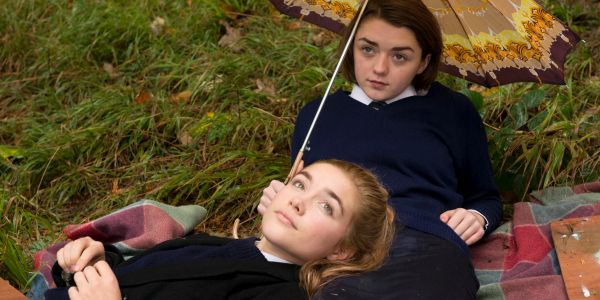
Carol Morley‘s horror-inflected drama about a mysterious fainting sickness that plagues the students and staff of an all-girls school explores the confusion and complexities of sexual maturity and the strangeness and hypocrisy of parental and administrative authority. With an outstanding ensemble, skilful direction and a haunting score, The Falling gets under the skin of the madness and surrealism of teenage development.
Lydia and Abbie share a close friendship and are practically inseparable. After Abbie falls pregnant, the girls find their relationship strained. A sudden tragedy sparks off a series of bizarre events and the school is soon investigated for mass hysteria, while Lydia’s mother remains ever reticent and reclusive.
An interesting and ambiguous film concerning personal awakening and transformation in a young person’s formative years, The Falling is a refreshingly complex and inconclusive affair that perfectly captures the fluid and volatile nature of puberty in a novel and fascinating manner.
2. Girlhood/Bande de filles (2014, Céline Sciama)
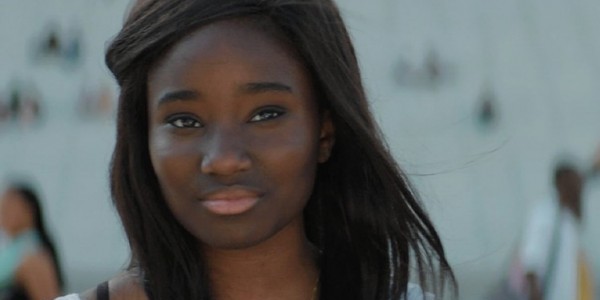
Céline Sciama’s Girlhood charts the teenage years of a young woman growing up in the rough suburbs of Paris. Living with her mother, two younger sisters, and an abusive older brother, Marieme (‘Vic’ to her friends) struggles with school work and is told to look into vocational courses that she does not want to do. She starts to hang out with a group of tougher girls and her life suddenly changes, allowing her to become much happier.
The film has been compared to Boyz ‘N The Hood and suggested as an antidote to Boyhood, but this is a simplification of its merits. It is a well-crafted, engaging and emotional film about a young woman trying to find her own identity, build herself an alternative future to that of her mother, and either break out of or distract herself from her unhappy surroundings. Furthermore, it serves as a commentary on casual and institutional racism and class struggles in metropolitan cities, the fluidity of sexuality and attraction, the inefficiencies of educational systems, and the influence of poverty on teenage crime.
Many coming-of-age films have focused on the lives of white male protagonists but in recent years, there has been a rise in such films made either for, by or about young women from diverse backgrounds. This is one of the finest recent examples.
1. Inside Out (2015)
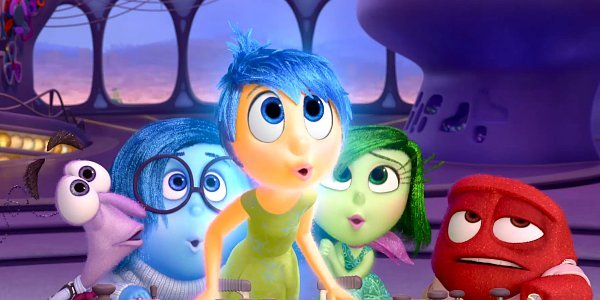
We started with a Pixar, so we’ll finish with a Pixar. Inside Out is an intelligent and moving animation that broke hearts all over the world upon its cinematic release last year. A funny exploration of a young girl adjusting to a new environment, fitting in at school and responding to her emotions was given a novel and amusing twist by focusing most of the narrative on the experiences of the emotions as characters. Indeed, Joy, Sadness, Anger, Fear, and Disgust must not only help young Riley develop, but must also do so themselves.
For most of Riley’s life, Joy has played a prominent role. Not only has Riley had a very happy childhood, but Joy herself has been the controlling force inside Riley’s head, keeping the other emotions in line and monitoring the progress of her host. However, when the world outside changes, chaos occurs inside. When things go from bad to worse, Joy is separated from the other emotions and forced to work with the usually ostracised Sadness. As they learn to work and live together, Riley learns to express and manage her anxieties and make the most of her new life in San Francisco.
Co-director/c0-writer Pete Docter has spoken about the purpose of the film as an attempt to help kids understand and deal with their emotions, encouraging them to express them without apprehension, either by talking about them with their friends and loved ones or depicting them creatively. Not only is this a great message to send out to kids, the film is also a relatively realistic warts-and-all representation of the difficulties and complexities of emotions that is accessible to its target (child) audience. Moreover, it is an exciting indication of the possibilities for more original, unpatronising and intelligent coming-of-age films for all audiences.
What films have I horrendously overlooked? Please comment below and offer your suggestions. A list of 10 just isn’t enough!
Does content like this matter to you?
Become a Member and support film journalism. Unlock access to all of Film Inquiry`s great articles. Join a community of like-minded readers who are passionate about cinema - get access to our private members Network, give back to independent filmmakers, and more.
PhD Student in Culture, Film and Media at the University of Nottingham Blogger at [email protected]













